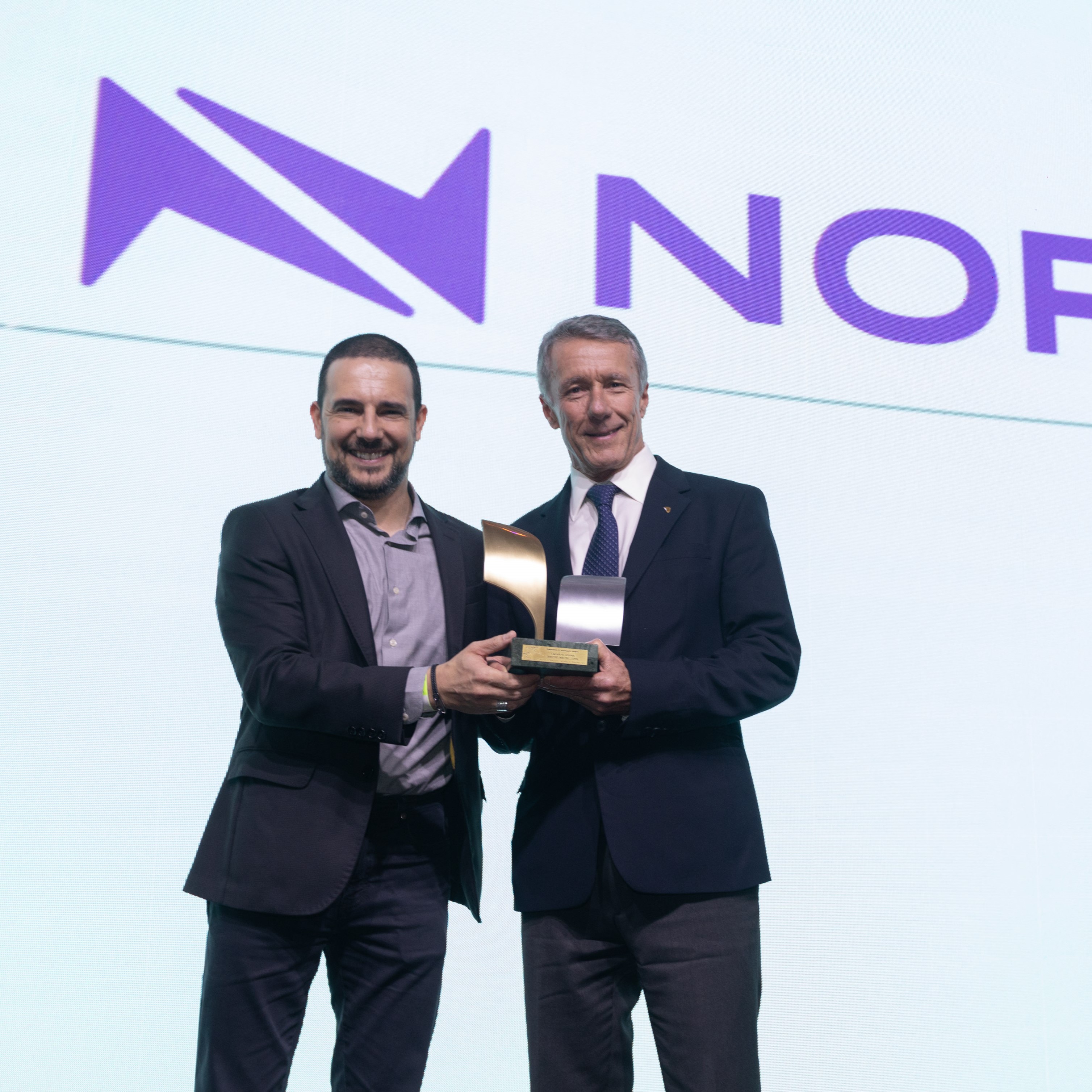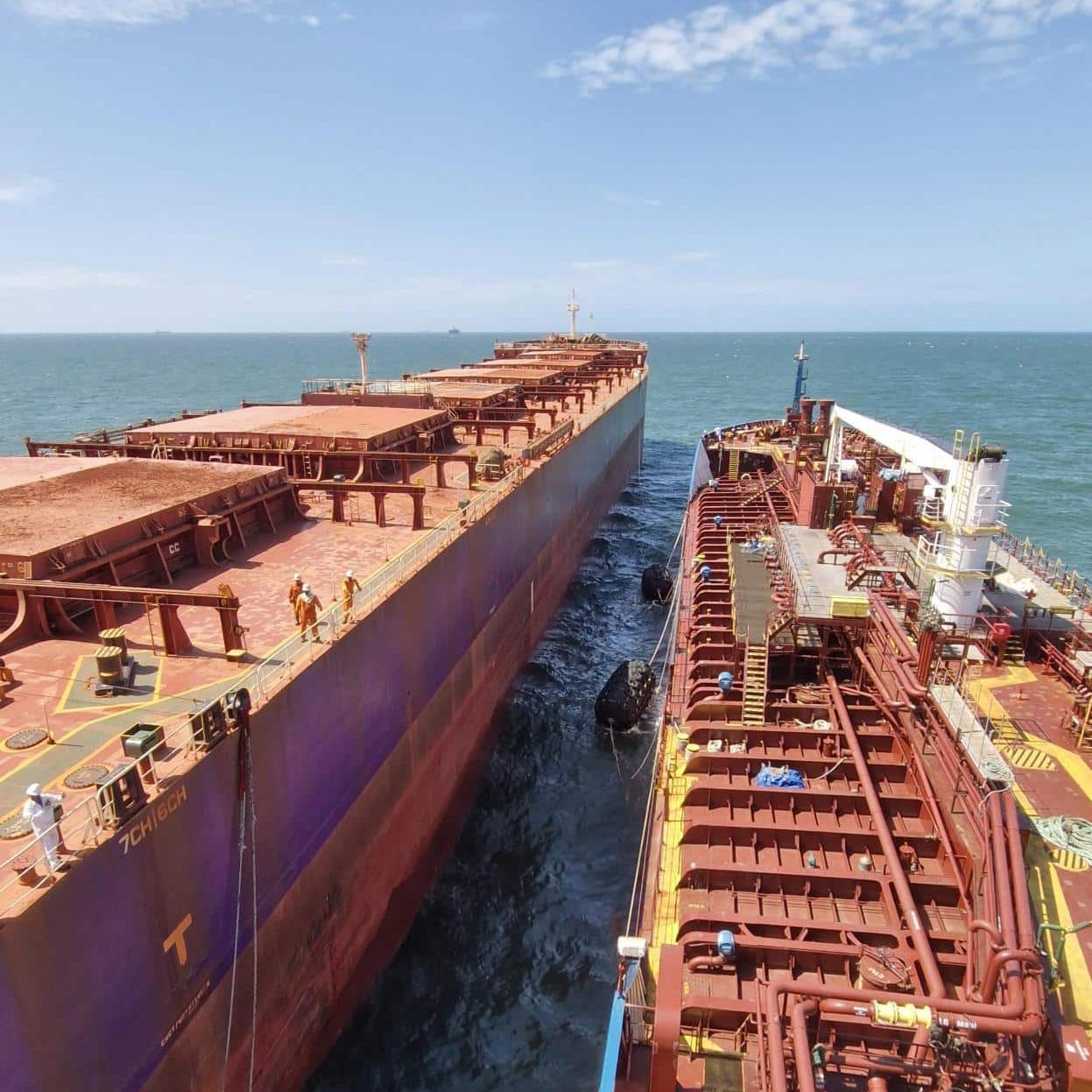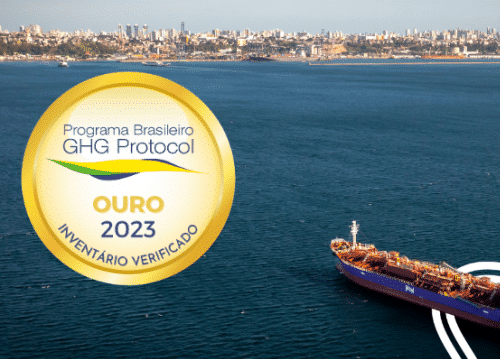For the first time in the country, in an event exclusively open to women, more than two hundred professionals from the maritime market gathered to discuss challenges and combat harassment in the workplace. In person, in Rio de Janeiro, and online, they participated in “Horizontes Femininos,” the first Brazilian forum to offer a platform for women’s voices in navigation. Women from the Merchant and Navy shared experiences during the meeting held on April 10 at the Adolpho Bloch Theater.
The event featured representatives from various areas and positions, such as vessel commanders, machinery officers, executives from large companies, directors of the National Waterway Transportation Agency (ANTAQ), and other professionals associated with maritime and port operations support.
Horizontes Femininos was a co-organization by Norsul and WISTA BRAZIL, an association that seeks to promote gender equity in the maritime industry. In the opening, data from a global LinkedIn survey was cited, showing: one in six women resigns due to harassment in their fields; 35% live in constant fear; and 30% lack confidence in themselves and others. Aline Carvalho, executive manager of People and Management at Norsul, was the panel moderator and master of ceremonies.
First panel discussed the impacts of harassment on women’s careers
The first panel of Horizontes Femininos, themed “Harassment and its impacts on Women’s Careers,” was presented by Maíra Liguori, director at the consultancy Think Eva and the NGO Think Olga, specialized in gender equity and a ten-year reference in combating sexual harassment. In her speech, Maíra explained that there is now Law 14.457/22, which obliges private companies to take part in combating harassment, maintaining vigilance, monitoring, creating a reporting channel, a more empathetic HR, among other actions, including educational ones, aiming to make the environment more comfortable, safe, and inclusive for women.
The consultant also celebrated the existence of the law and explained that it is imperative for companies to take a stand because a person trained in the work environment gains a new perspective in society, both for sexual and moral harassment.
“Moral harassment is an exercise of power and it happens in three ways: vertical, with differences in hierarchical positions, usually with the woman being subordinate to a man; horizontal, among colleagues; and mixed. It is important to say that the habitual nature of the conduct and intentionality are indispensable to characterize moral harassment,” Maíra emphasizes, highlighting that this is not merely an individual or political problem, left or right: “it is a gender issue and reproduces practices rooted in society.”
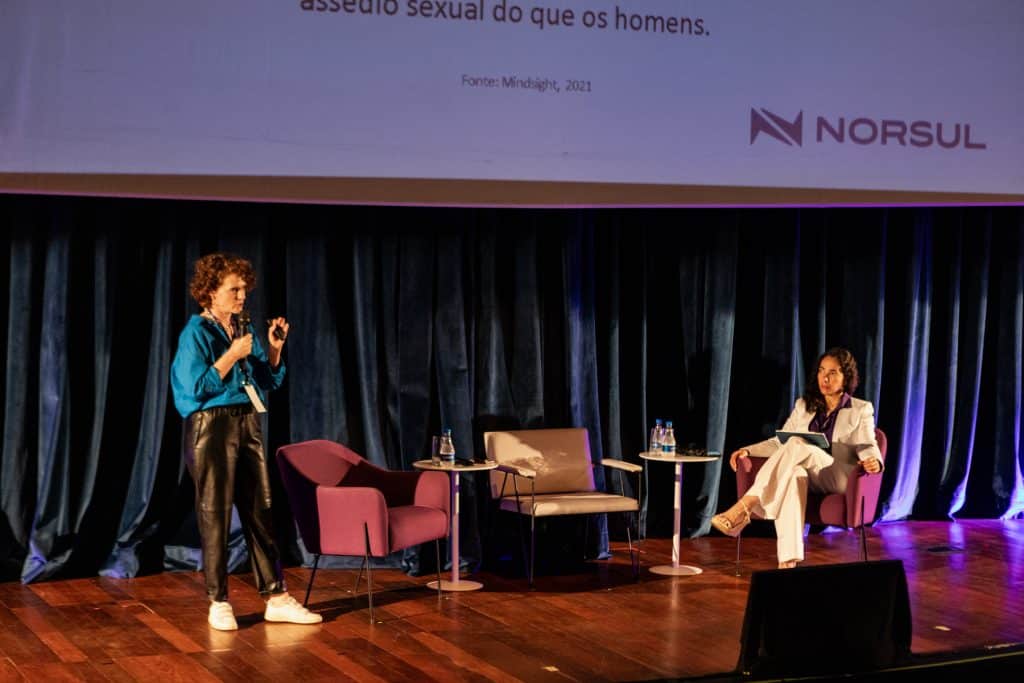
Sexual harassment, she explained, originates from blackmail and intimidation. “Consent is the keyword to define harassment. As women, we need to learn to consent and not to consent. We were not taught to say that we do not want to be spoken to in this or that way. We were not taught to stand firm,” she highlights.
The global LinkedIn survey showed that 47% of women in the workforce experience harassment, and only 5% report it. “Breaking the cycle of harassment is everyone’s responsibility. We do not want privileges; we want rights and opportunities in the same proportion as men,” says the director of Think Eva consultancy, concluding: “We cannot talk about harassment without talking about race. Black women suffer even more harassment than white women. We need to take a stand, react, and report.”
Guide to Combating Harassment in the Waterway Sector: 17% of the waterway sector workforce are women
The next panel of Horizontes Femininos featured Flávia Takafashi, director of the National Waterway Transportation Agency (ANTAQ), along with Luciana Suman, chief engineer and director of institutional relations at WISTA Brazil, to discuss the “Guide to Combating Harassment in the Waterway Sector.” The initiative is a joint effort by the Ministry of Ports and Airports (MPor) and ANTAQ, developed in partnership with WISTA Brazil and the Brazilian Bar Association (OAB). The Guide is a manual of best practices to combat harassment against women working in Brazilian ports and navigation.
Flávia Takafashi explained that the idea was born from a presentation that WISTA Brazil made to ANTAQ as a cooperation agreement to discuss the participation of women in the sector. This led to the first deliverable from the partnership: a survey conducted in March 2023, which found that only 17% of the waterway sector workforce are women. Of this total, only 16.7% are in executive positions, 22.5% in management positions, and 16.4% in operational positions.
“It took about four to five months discussing the harassment topic, seeking indicators, and structuring the creation of the Guide project, which included discussion circles and workshops. For the first time, the topic is being addressed systematically. It is clear that it is aimed at the waterway sector, but we see the guide as a state tool, where we talk about people and help women in general. We are very proud of the work we have done,” concluded Flávia.
“Challenges of a Woman’s Career at Sea”: Believe in your potential
In the last debate of the day, Horizontes Femininos featured women from the waterway sector — from various areas and positions — to discuss topics such as female empowerment, leadership, diversity, motherhood, career, and harassment, as well as the prejudice that still exists in this market towards women and the evolution of female presence in a predominantly male sector. Among those who shared their inspiring perspectives on overcoming challenges were: Veridiany Silva, machinery operator and author of the book “Much Beyond Abuse: The Rebirth of a Story”; Fabiana Durant, long-haul captain and director at the Merchant Marine Captains’ Center, IMO ambassador in Brazil, as well as leader of Ship-to-Ship operations management at Porto Sudeste do Brasil, in Sepetiba Bay; and electrician Cristiane dos Santos, who manages the Women in Waterways group and has experience in naval projects, among others.
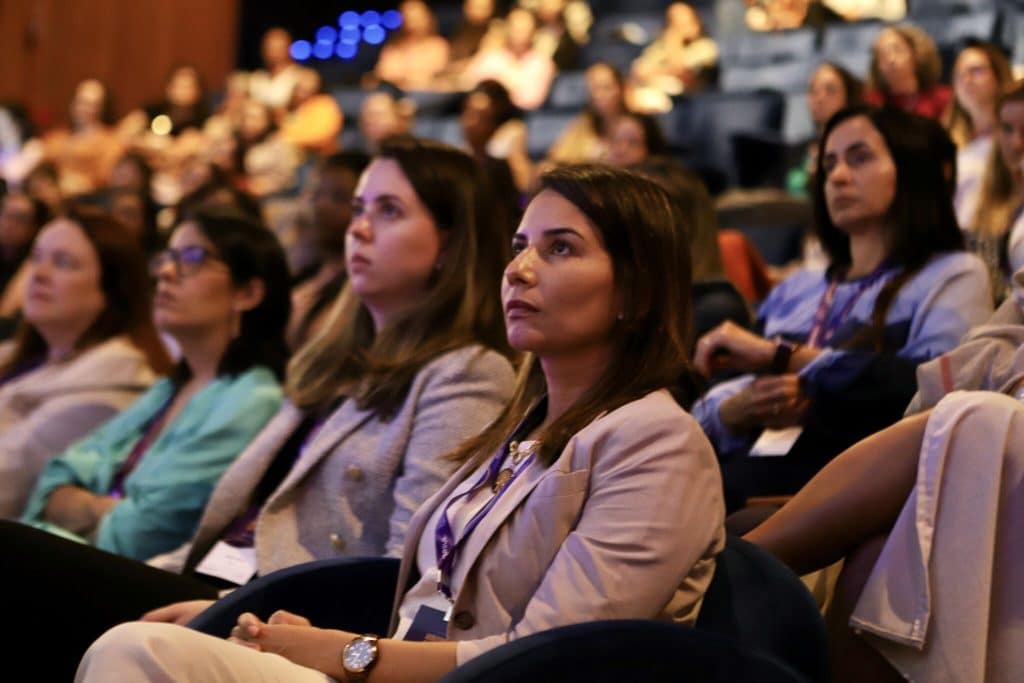
At the forum, they were asked about the biggest challenges they have faced in their careers, and some answers frequently appear in surveys, regardless of the sector or area of that group of people. Among the main topics they brought up and that bother them the most are: the doubt from male colleagues or leaders about whether they can handle the work; how to balance career and motherhood; fear of being harassed, as they often embark for weeks at sea and are the only woman on board the ships. “Harassment paralyzes. I have hidden under the bed, inside cabins, for fear of suffering some kind of abuse,” one of them shared.
Horizontes Femininos also discussed possible solutions to the challenges
When asked about possible solutions for each of the presented topics, each raised a different perspective. A more humanized approach to people development; not repeating patterns; seeking more examples of representation; sorority; upbringing education; planting the seed, spreading the topic; unity; resumes being analyzed without name or gender; allowing market adaptation, such as female bathrooms on small vessels; sharing their own stories to build examples, among others. “When we have a voice, we reach other women. We inspire and place them in leadership positions” was a message from all present.
As a closing message to the audience that followed Horizontes Femininos, the women expressed their interest in growing the initiative, launching new meetings, and encouraging more companies to support the topic. “Given the power and impact, reinforcing the relevance of collaboration among sector companies, we want to continue mobilizing women in the market with moments of deep reflection, soon, with new meetings where we can together debate paths, propose and commit to actions. We want to make this agenda recurring, counting on the leadership of so many women willing to impact the world,” highlighted Aline Carvalho.
“This first edition of ‘Horizontes Femininos’ made us very proud, as we witnessed the strength and courage of women in the waterway sector. We will not stop here. Together, we can do a lot!” concluded Priscila Lopez, manager of Development and Communication at Norsul.
